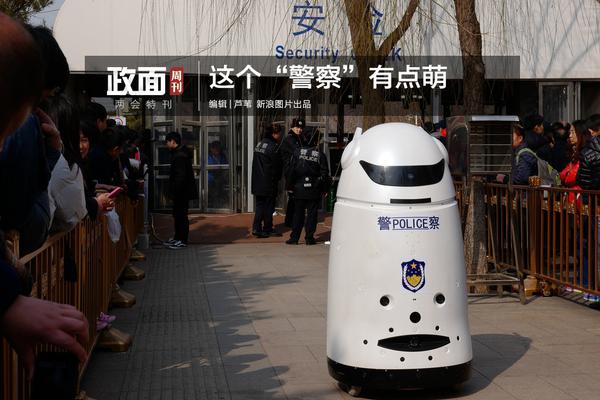
Short-term memory, long-term memory. Cognitive psychology regards memory as the process of coding, storing and extracting input information by the human brain. Memory is divided into three systems: instantaneous memory, short-term memory and long-term memory, which is based on the different ways of encoding, storing and extracting information, as well as the different length of information storage time.
What are the three memory systems: memory is also regarded as the process of the human brain encoding, storing and extracting input information, and according to the different ways of coding, storing and extracting information, as well as the different length of information storage time, memory is divided into instantaneous memory, short-term memory and long-term memory. A system.
What are the three memory systems? According to the different ways of encoding, storing and extracting information, and the different length of information storage time, memory is divided into three systems: instantaneous memory, short-term memory and long-term memory.
The three stages of memory are sensory memory, short-term memory and long-term memory. Sensory memory: Sensory memory refers to the information we receive through various sensory organs, such as vision, hearing, touch, taste and smell.
What are the three memory systems? According to the different ways of coding, storage and extraction of information, and the different length of information storage time, memory is divided into instantaneous memory, short-term memory and long-term memory. Remember the three systems.
The coding method of instantaneous memory, that is, the way instantaneous memory remembers information, is the image of external stimuli. Because the information of instantaneous memory is first registered in the sensory channel in the form of sensory images, instantaneous memory has a distinct image. The capacity of instantaneous memory is large, but the retention time is very short.
Perception is the cognitive process of giving meaning through information. ( 2) Working memory. It is the memory of processing and encoding information in the human brain within a minute. The holding time is about 5 seconds to 1 minute. Short-term memory also includes direct memory and working memory.

Weber's score), which is only applicable to medium-intensity stimuli, which is different from the Weber's score of sensory organs (2) Fechner's Law: 1860, using the differential threshold as the unit of sensation, a stimulus was measured. The difference threshold contained is believed to be the psychological intensity caused by this stimulus.
The concept of memory is the psychological process of accumulating, preserving and extracting individual experience in the mind.From storing into the brain to extracting and applying again, this complete process is collectively called memory.
Long-term memory refers to the memory maintained for more than a minute after external stimuli appear in a very short time. Features: The capacity of memory is unlimited, whether it is the type or quantity of information. Coding Semantic coding: Use words to process information and organize coding according to the meaning of the material.
Memory and memory process Definition: It is the reaction of past experience in the mind. Past experience refers to the perception of things, thinking about problems, the emotional experience caused by things, and the actions that have been carried out in the past. Function: It is the root of wisdom and the cornerstone of psychological development.
okx.com login-APP, download it now, new users will receive a novice gift pack.
Short-term memory, long-term memory. Cognitive psychology regards memory as the process of coding, storing and extracting input information by the human brain. Memory is divided into three systems: instantaneous memory, short-term memory and long-term memory, which is based on the different ways of encoding, storing and extracting information, as well as the different length of information storage time.
What are the three memory systems: memory is also regarded as the process of the human brain encoding, storing and extracting input information, and according to the different ways of coding, storing and extracting information, as well as the different length of information storage time, memory is divided into instantaneous memory, short-term memory and long-term memory. A system.
What are the three memory systems? According to the different ways of encoding, storing and extracting information, and the different length of information storage time, memory is divided into three systems: instantaneous memory, short-term memory and long-term memory.
The three stages of memory are sensory memory, short-term memory and long-term memory. Sensory memory: Sensory memory refers to the information we receive through various sensory organs, such as vision, hearing, touch, taste and smell.
What are the three memory systems? According to the different ways of coding, storage and extraction of information, and the different length of information storage time, memory is divided into instantaneous memory, short-term memory and long-term memory. Remember the three systems.
The coding method of instantaneous memory, that is, the way instantaneous memory remembers information, is the image of external stimuli. Because the information of instantaneous memory is first registered in the sensory channel in the form of sensory images, instantaneous memory has a distinct image. The capacity of instantaneous memory is large, but the retention time is very short.
Perception is the cognitive process of giving meaning through information. ( 2) Working memory. It is the memory of processing and encoding information in the human brain within a minute. The holding time is about 5 seconds to 1 minute. Short-term memory also includes direct memory and working memory.

Weber's score), which is only applicable to medium-intensity stimuli, which is different from the Weber's score of sensory organs (2) Fechner's Law: 1860, using the differential threshold as the unit of sensation, a stimulus was measured. The difference threshold contained is believed to be the psychological intensity caused by this stimulus.
The concept of memory is the psychological process of accumulating, preserving and extracting individual experience in the mind.From storing into the brain to extracting and applying again, this complete process is collectively called memory.
Long-term memory refers to the memory maintained for more than a minute after external stimuli appear in a very short time. Features: The capacity of memory is unlimited, whether it is the type or quantity of information. Coding Semantic coding: Use words to process information and organize coding according to the meaning of the material.
Memory and memory process Definition: It is the reaction of past experience in the mind. Past experience refers to the perception of things, thinking about problems, the emotional experience caused by things, and the actions that have been carried out in the past. Function: It is the root of wisdom and the cornerstone of psychological development.
 Binance wallet
Binance wallet
391.84MB
Check OKX Wallet apk download latest version
OKX Wallet apk download latest version
795.46MB
Check Binance download
Binance download
269.91MB
Check Binance login
Binance login
695.97MB
Check Binance US
Binance US
855.86MB
Check OKX Wallet login
OKX Wallet login
826.51MB
Check OKX Wallet Sign up
OKX Wallet Sign up
988.78MB
Check Binance download Android
Binance download Android
514.84MB
Check OKX Wallet APK
OKX Wallet APK
227.58MB
Check OKX Wallet
OKX Wallet
372.65MB
Check Okx app download
Okx app download
869.31MB
Check OKX download
OKX download
524.98MB
Check Binance login
Binance login
788.41MB
Check Binance login
Binance login
611.56MB
Check Binance download Android
Binance download Android
121.28MB
Check OKX app
OKX app
861.46MB
Check Binance app
Binance app
393.51MB
Check Binance US
Binance US
454.94MB
Check Binance wallet
Binance wallet
758.78MB
Check Binance login
Binance login
885.59MB
Check Binance download APK
Binance download APK
853.45MB
Check Binance login
Binance login
682.94MB
Check Binance login
Binance login
475.42MB
Check OKX Wallet Sign up
OKX Wallet Sign up
714.37MB
Check Binance app
Binance app
691.47MB
Check Binance US
Binance US
342.84MB
Check OKX Wallet app
OKX Wallet app
246.28MB
Check Binance login App
Binance login App
736.61MB
Check Binance download Android
Binance download Android
254.31MB
Check Binance login
Binance login
651.57MB
Check Binance login
Binance login
248.97MB
Check Binance wikipedia
Binance wikipedia
167.34MB
Check Binance download Android
Binance download Android
463.93MB
Check okx.com login
okx.com login
956.39MB
Check Binance login App
Binance login App
395.35MB
Check Binance exchange
Binance exchange
686.99MB
Check
Scan to install
okx.com login to discover more
Netizen comments More
990 损人害己网
2025-01-23 00:20 recommend
66 除恶务尽网
2025-01-23 00:17 recommend
659 得意洋洋网
2025-01-23 00:10 recommend
1836 择邻而居网
2025-01-22 22:46 recommend
2630 拔本塞原网
2025-01-22 22:25 recommend